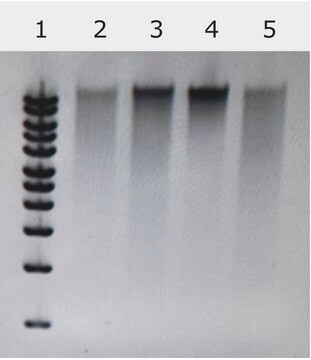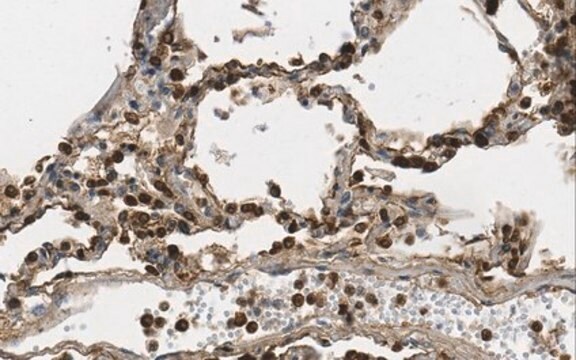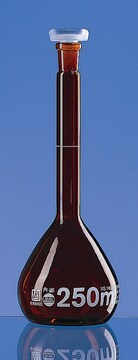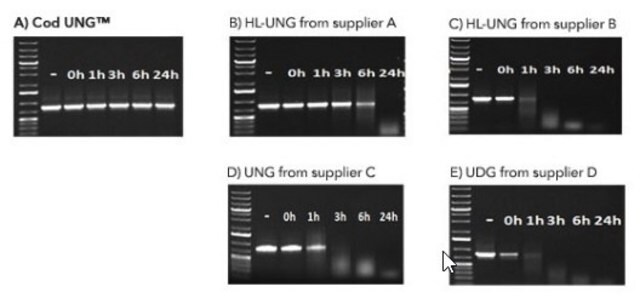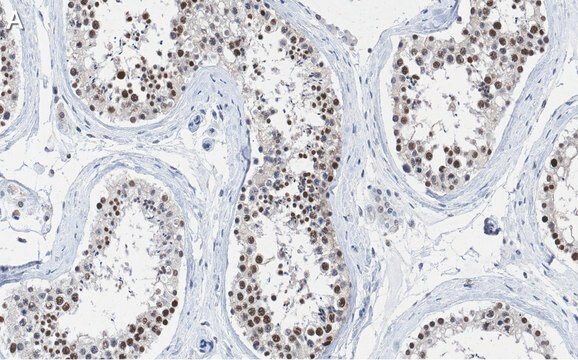63020-016
DNAgard® Tissue
Trial kit, for room temp preservation of DNA
Sign Into View Organizational & Contract Pricing
All Photos(4)
About This Item
UNSPSC Code:
12352200
Recommended Products
grade
Molecular Biology
for molecular biology
form
liquid
usage
3 reactions
storage temp.
room temp
Features and Benefits
- Protects DNA in tissues, cells and biopsy material from degradation at room temperature
- Compatible with most downstream applications, e.g., PCR, qPCR and sequencing.
- Optional dry-down feature allows for long-term storage
- Reduces storage and shipping costs and improves lab space management
Packaging
3 tubes x 500 μL
Legal Information
DNAgard is a registered trademark of Biomatrica
signalword
Danger
hcodes
Hazard Classifications
Eye Dam. 1
Storage Class
10 - Combustible liquids
wgk_germany
WGK 3
flash_point_f
Not applicable
flash_point_c
Not applicable
Choose from one of the most recent versions:
Certificates of Analysis (COA)
Lot/Batch Number
It looks like we've run into a problem, but you can still download Certificates of Analysis from our Documents section.
If you need assistance, please contact Customer Support.
Already Own This Product?
Find documentation for the products that you have recently purchased in the Document Library.
Michael A Gray et al.
FEMS microbiology ecology, 83(2), 468-477 (2012-09-15)
Field collections of environmental samples, for example corals, for molecular microbial analyses present distinct challenges. The lack of laboratory facilities in remote locations is common, and preservation of microbial community DNA for later study is critical. A particular challenge is
A Allen-Hall et al.
Forensic science international. Genetics, 6(5), 653-657 (2012-01-25)
Disaster victim identification (DVI) poses unique challenges for forensic personnel. Typical scenarios may involve many bodies or body parts to identify in remote locations with limited access to laboratory facilities and in extreme temperatures. Transportation of tissue samples to a
Steven B Lee et al.
Forensic science international. Genetics, 6(1), 31-40 (2011-02-18)
The ability to properly collect, analyze and preserve biological stains is important to preserving the integrity of forensic evidence. Stabilization of intact biological evidence in cells and the DNA extracts from them is particularly important since testing is generally not
Our team of scientists has experience in all areas of research including Life Science, Material Science, Chemical Synthesis, Chromatography, Analytical and many others.
Contact Technical Service
